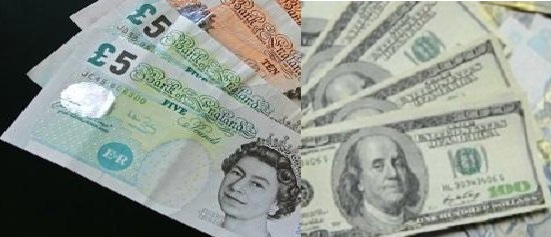LONDON, United Kingdom — The pound dropped on Tuesday, reaching lows against the dollar not seen since 1985, as the British central bank warned the outlook for financial stability was “challenging”.
The Bank of England eased commercial banks’ capital requirements to boost lending, saying financial risks had “begun to crystallize” in the aftermath of a British vote to leave the EU.
Around 1545 GMT, the British currency stood at $1.3032, having earlier slipped to $1.3028, a level last seen in the summer of 1985.
READ: Pound dives as Brexit vote rattles forex market
“A downward trend in the pound seems to have been triggered thanks to the measures taken by the Bank of England and the possibility of the pound returning to parity with the euro,” said Sylvain Loganadin at online trading firm FXCM.
It was quoted at 85.07 pence against the euro, below its two-year low seen post-Brexit, having earlier slipped as far as 83.89 pence.
The pound could well fall further, predicted Capital Economics analyst John Higgins.
“The ongoing economic and political uncertainty, as well as the backdrop of the UK’s huge current account deficit, would surely justify a bigger decline,” he said.
Higgins added however that this was not a bad thing for the British economy.
“While sterling’s fall is clearly a symptom of other problems, it may also be part of the cure. Inflation will be somewhat higher than otherwise, but net exports should benefit,” he said.
In a bi-annual report, the Bank of England said that “the current outlook for UK financial stability is challenging”.
The British central bank announced it has cut its so-called capital buffer rate from 0.50 percent to zero, where it will stay until at least June 2017.
The move will boost lending by up to £150 billion ($199 billion, 179 billion euros) — and reduce banks’ regulatory capital buffers by £5.7 billion, the BoE announced.
BoE governor Mark Carney pledged it would do whatever is needed to aid monetary and fiscal stability following the June 23 referendum that saw Britain vote to exit the EU.
“The bank can be expected to take whatever action is needed to promote monetary and financial stability, and as a consequence, support the real economy,” Carney told reporters in central London.
